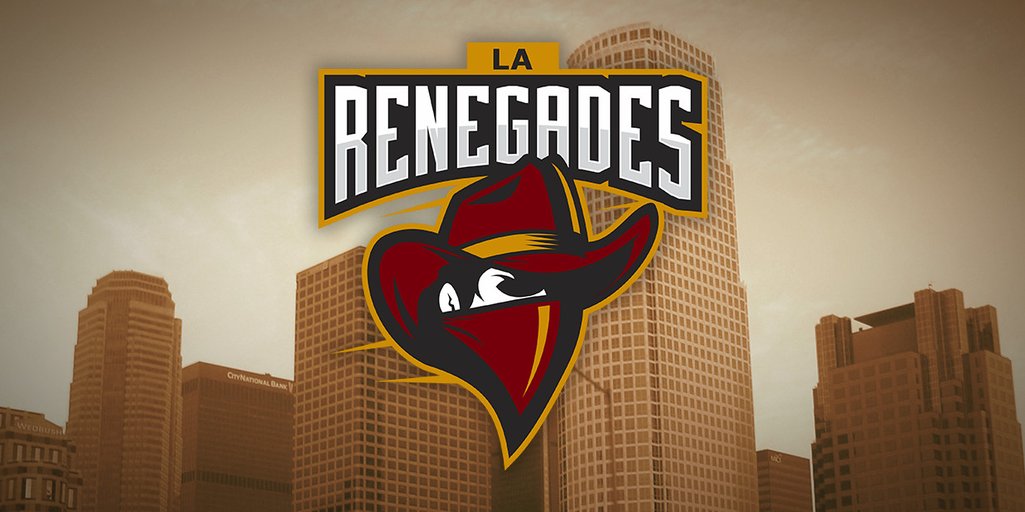Renegades and Christopher “MonteCristo” Mykles released a statement late last night regarding their position on the tampering allegations leveled against his fellow owner Chris Badawi and the punishment Riot Games has put in effect.
Mykles and Renegades are sticking with Badawi as co-owner, at least until the team qualifies for the League Championship Series (LCS) and Riot Games’ ban of Badawi from that competition receives efficacy.
“I continue to want to work with Mr. Badawi in spite of this incident,” Mykles explained, while offering an apology to Team Liquid and its owner Steve Arhancet, for any perceived wrongdoing. Mykles said he knew about the investigation regarding tampering with Diego “Quas” Ruiz when he was in discussions to join the team, but believed it was “relatively innocuous” as no poaching actually occurred.
“We agree that the poaching and tampering rules currently skew in favor of the teams and at the expense of the players, but that does not excuse his behavior in light of the current ruleset for LCS teams,” Mykles said. Badawi’s stance on those rules is outlined in an article regarding the Challenger Series on the Daily Dot.
In the post, Mykles chronicles the journey of Badawi from esports neophyte to League of Legends team owner capable of alleged tampering, starting with a lengthy stop at the Team Liquid house after he entertained the idea of buying Team Liquid Academy before he was outbid by Davis Vague for the now-Gravity Gaming team. There, Badawi developed relationships with players like Diego “Quas” Ruiz and Yuri “KEITHMCBRIEF” Jew.
After establishing his own team, at some point early this year, Badawi contacted Jew with the prospect of playing on the developing squad. At the time, the AD carry was competing on Liquid’s academy squad. When Team Liquid owner Steve Arhancet learned of Badawi’s approach, he explained Riot’s poaching policy and kept the conversation between just the two owners. The initial contact then was essentially just a rookie mistake by Badawi, as Mykles paints it. The two parties were close to negotiating a deal until Team Liquid realized it needed Jew as a substitute for its main squad, ending the discussions. Badawi later contacted Riot Games to clarify their rules on poaching and tampering, and Mykles states that he “was told by Riot that amateur teams were not held to any ruleset.”
Then, on April 22, Badawi had a conversation with Diego “Quas” Ruiz regarding his future as a player. The two had developed a friendly relationship during Badawi’s time at the Team Liquid house. Badawi claims that he offered advice for the player, but did not offer him a contract or a position on his team, a claim that Riot Games refutes.
“To my knowledge Mr. Badawi never offered Quas a contract for his team and since the only evidence is hearsay, I have no way of verifying this fact,” Mykles writes. “Regardless, I do believe that this action crossed an ethical line, even if Mr. Badawi’s intentions lay in the interest of the player.”
Even so, Mykles and Renegades were caught off guard by the ruling. He notes that previous punishments for poaching itself—an infraction even greater than tampering—seemed smaller than Badawi’s, even if he believes they were too mild. Plus, the rule that Riot Games used to punish Badawi, Section 3.1 of the LCS rulebook, which allows the organization to deny admission to prospective LCS owners, was only added to the rulebook on May 22, after any alleged wrongdoing had occurred.
Still, Mykles says he believes in the intentions of the rule. “As such, Renegades accepts Mr. Badawi’s temporary ban from the LCS as a necessary step forward in the greater interests of the industry,” he says.
Though that doesn’t mean Renegades agrees with the current policy most organizations hold regarding tampering and poaching. In fact, Renegades has added a clause to its player contracts that requires the team to notify players of any outside offers for their services.
“In essence, we view one of the problems within esports from the player’s rights perspective is the inability to know if an outside team seeks their services,” Mykles explains. “Our clause means that the managers and owners of other organizations may come to us and we, as Renegades owners, are legally obligated to inform them of the opportunity. Mr. Badawi and I both seek to implement clauses that help our players make the most of their careers, even if their best interests lie with another team.”
In many ways, this harsh punishment provides Renegades a platform to offer their stance on poaching and tampering to a wider audience. Of course, the team would rather have its founder and owner able to take the LCS stage with them, should they qualify for it within the next year and a half. But it’s clear they’re not going to let a little thing like that slow them down.

